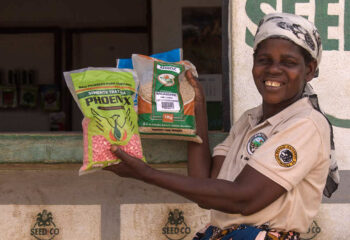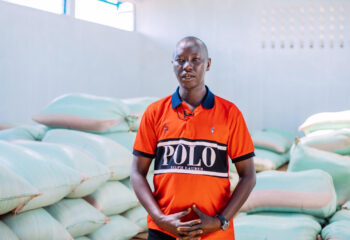
In the commune of N’Dali in northern Benin’s Borgou Department, agriculture is undergoing a major transformation, driven by local women’s initiatives and the support of the Communal Approach to the Agricultural Market in Benin, Phase 3 (ACMA3) project. Funded by the Embassy of the Kingdom of the Netherlands in Benin and implemented by the International Fertilizer Development Center (IFDC) in collaboration with CARE Benin-Togo and KIT, ACMA3 not only provides agricultural training but also stimulates local entrepreneurship.
This is how ACMA3 goes beyond agricultural techniques: it trains women to become capable leaders in their communities, generating stable incomes while feeding their families and their local markets with healthy produce.
Thanks to ACMA3, women like Rachidath Asso and Yanki Maré Orou are discovering new farming methods that are changing their vision of agriculture through learning opportunities, such as the recent open-door event on new high-yield tomato and pepper varieties introduced by ACMA3 at the Boko hydro-agricultural site in N’dali.

The Boko hydro-agricultural site, consisting of 65 hectares equipped with amenities that facilitate agricultural production, including a large dam near the site, is where the members of the Coopérative Prospérité engage in agricultural activities, including market gardening – one of the priority sectors supported by ACMA3. In its first two years of implementation, ACMA3 chose this cooperative, which is made up of young people and women and promotes their inclusion and employment, to introduce new high-yielding pepper and tomato varieties.
An open-door event was then organized on the site during harvest. Through this event, the ACMA3 project facilitated a rich sharing of experiences and offered attendees the opportunity to learn about the products of the harvest.
They made surprising discoveries, particularly the Jara variety of tomatoes, which marked a turning point in their perception of agricultural production. “We’ve all grown tomatoes in our gardens, but we’d never seen tomatoes like this before,” remarked Rachidath Asso. Rachidath and other attendees were inspired to adopt new practices to improve the quality of their produce.

Yanki Maré Orou’s ambitions grew after she learned about the Jara, Abalé, and Gama tomato varieties. She hopes to modernize her own garden. “Not only are these tomatoes beautiful, firm, big, and fleshy, but they also promise better results,” she said. Yanki feels hope in what she grows, which can benefit her entire future. This is how ACMA3 goes beyond agricultural techniques: it trains women to become capable leaders in their communities, generating stable incomes while feeding their families and their local markets with healthy produce.
Alongside agricultural innovations, the digital revolution is also taking hold in rural N’Dali. Monique Goudjanou, sales manager at Coopérative Prospérité, uses social networks, especially WhatsApp, to promote her cooperative’s products. “Thank God social networks exist! I can publish my products and get in direct contact with customers,” she enthusiastically commented. This marketing strategy not only increases sales but also cuts out the middleman.

In short, ACMA3’s specific combination of technology and modern agricultural techniques is enabling the women of N’Dali to reinvent their farming methods to innovate and maximize their economic potential. Through this transformation, they are working toward healthier, more climate-resilient, more profitable agriculture for the sustainable future of their communities.
Thanks to the ongoing commitment of the ACMA3 project, these women are not just farmers, but pillars of local development. The program continues to provide the opportunities, knowledge, and resources for every woman farmer to succeed, creating a lasting impact that shapes the future of rural communities. ACMA3 demonstrates that by investing in women and agricultural innovation, a prosperous future is within reach.
The Communal Approach to the Agricultural Market in Benin (ACMA) program, financed by the Embassy of the Netherlands in Benin since 2013, is implemented by the International Fertilizer Development Center (IFDC) in a consortium with CARE International Benin and KIT.



